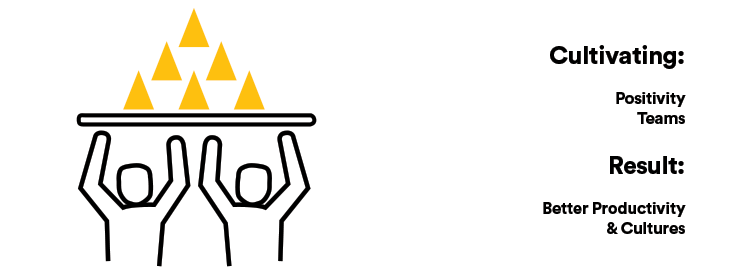
I want you to imagine a field sales team of 20 B2B salespeople, each of whom has their own well-defined sales territory (it could be industry-based or geographical, doesn’t matter) and sales targets. They have access to sales support and customer service. Every month this sales team, including sales support, meets (virtually and occasionally in person) to workshop their territory plans looking at what’s working and what’s not.
These meetings are focused on moving forward and how to get better sales traction and deliver on results. Sure, each salesperson is required to enter their activities and deal progress in the CRM pipeline weekly, but it’s these monthly meetings where the magic happens, not just on the sales pipeline and deals front, but on the human culture front.
Everyone is united around a common purpose, clear value proposition and national strategy which is broken down into these individual sales territories. They know what they are selling to whom and why. This sales team culture has something extra that everyone abides by – leave no one behind.
If it emerges that a salesperson is having challenges in their territory for whatever reason -struggling with getting deals over the line, the local market has slowed, personal circumstances have made it harder to deliver, and so on- all the other salespeople and sales support work with that salesperson to help them recover and/or get through that rough patch. Whether it’s coaching, mentoring, taking over the reins for a bit, making calls or leveraging networks, everyone is vested in getting that individual and the team to deliver.
By contrast, companies that promote business, and by default selling, as highly competitive, aggressive operations and cultures, i.e:
- All the salespeople compete with each other for the top spot and the bottom are culled
- Encouragement of cut-throat, high-pressure, take-no-prisoners’ cultures to drive their financial success
- Customers are seen as ‘Targets’ and getting a sale is referred to as ‘the Kill’.
- Customers are regarded as objects to be possessed or trophies to be placed in their cabinet; to be shown off and admired (perversely so) like stuffed animal heads on the wall.
well, there’s a large and growing body of research that shows these dog-eat-dog cultures are extremely harmful to productivity, retention, and people’s wellbeing. Unfortunately, this type of culture has been promoted, for too long, as the ideal sales team culture.
The cost associated with these toxic, high-pressure cultures include:
- Blow out in health care expenditure due to workplace stress and higher chances of cardiovascular disease and death from heart attacks
- Employee disengagement including high absenteeism, more errors, lower productivity, lower profitability, lower job growth and lower share price
- Lack of loyalty
As reported recently in the HBR – Proof Positive Work Cultures Are More Productive, ‘Although there’s an assumption that stress and pressure push employees to perform more, better, and faster, what cutthroat organizations fail to recognize is the hidden costs incurred. This research on positive organizational psychology demonstrates that not only is a cut-throat environment harmful to productivity over time, but that a positive environment will lead to dramatic benefits for employers, employees, and the bottom line.’
The story shared at the beginning of this article is not a fantasy, it is true. The collegiate, collaborative, and caring approach taken by companies who value their people and seek to encourage people to build genuine client relationships, develop real value and building out positive, collaborative and productive sales team cultures have the last laugh when it comes to better sales, profitability, employee and customer retention, reputation, culture and shareholder return.
Remember, everybody lives by selling something.
Related topics
Why hiring or keeping the 600lb sales gorilla is a mistake
Human Centred Selling – designing Empathetic Customer Centric Cultures
A year ago
Human-Centred sales teams – A game-changing strategy
Five years ago


New Article Email Notification